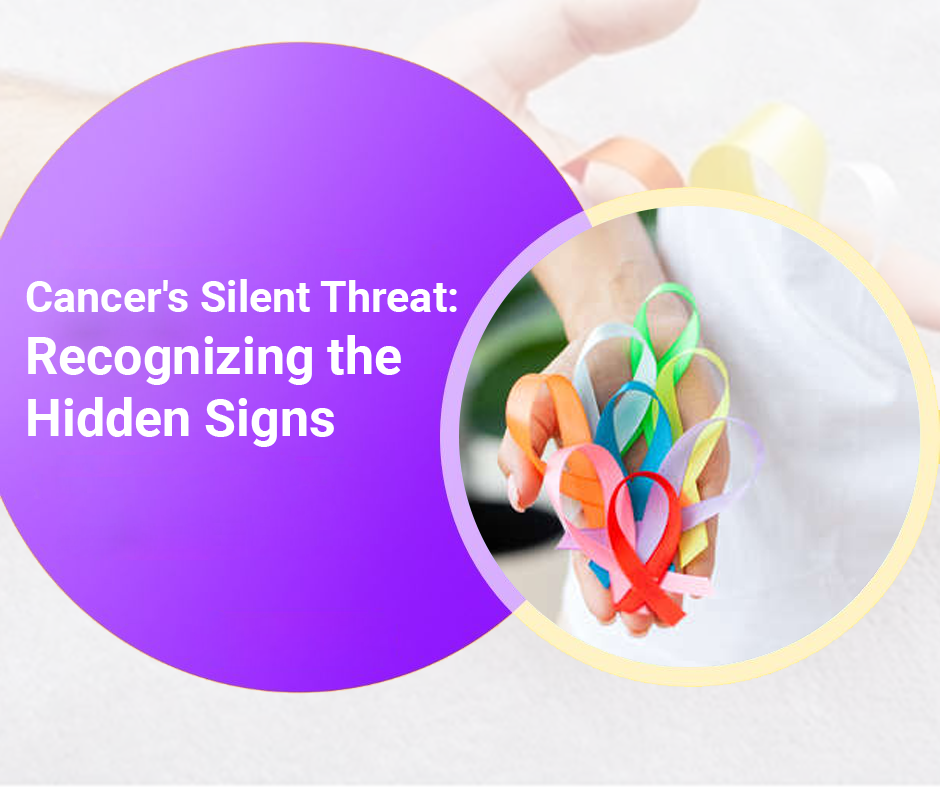

Cancer is a tenacious foe, often going undiagnosed until it grows on a strong footing. While some varieties cause visible symptoms, others might grow and spread quietly without raising any alarms. Recognizing the possibility of undiagnosed cancer and recognizing the symptoms is critical for early intervention and better results.
Common Types of Cancer That Can Go Unnoticed
Certain cancers are known for their potential to go undetected in the early stages. Pancreatic cancer, for example, may not cause any symptoms until it has progressed, making it one of the deadliest varieties. Ovarian cancer is another silent killer, with symptoms that might be mistaken for less serious diseases. Even lung cancer, the greatest cause of cancer-related fatalities, can go undetected until it is advanced.
Factors Contributing to Undetected Cancer Growth
Several factors can lead to the unnoticed spread of cancer. Genetic predisposition, lifestyle choices (such as smoking or a bad diet), and environmental exposures can all have an impact. Furthermore, certain cancers begin in parts of the body that are difficult to examine or monitor, such as the pancreas or ovaries, allowing them to spread undetected.
The Importance of Regular Screenings and Check-ups
Regular screenings and check-ups are critical for discovering cancer early, especially in the asymptomatic state. Screening recommendations vary depending on age, gender, and risk factors, but they can typically detect cancer before it becomes apparent. For example, mammograms can detect breast cancer in its early stages, whereas colonoscopies can detect precancerous polyps in the colon.
Subtle Symptoms to Watch For
Cancer can occasionally present in subtle ways before more evident symptoms develop. Early detection is critical for successful therapy, so be mindful of these mild indicators and do not discount them. Here are some mild signs that could signal an underlying cancer:
Physical Changes That May Indicate Cancer
Persistent Cough or Hoarseness: While these are symptoms of a simple cold, a cough that lasts more than a few weeks or persistent hoarseness may indicate lung or throat cancer.
Unexplained Weight Loss: If you're losing weight without trying, it could indicate a variety of diseases, including pancreatic, stomach, and lung cancer.
Unusual Bleeding or Discharge: Bleeding from the vagina, rectum, or any other uncommon location may be indicative of cervical, colon, or other types of cancer.
Skin Changes:Non-healing sores, changes in mole size or color, or skin thickening may suggest skin cancer or another type of cancer.
Unexplained Fatigue and Other General Symptoms
Fatigue: Feeling weary all the time, even after a good night's sleep, can be an early indicator of several diseases, including leukemia and colon cancer
Persistent Pain: Unexplained discomfort that persists or worsens over time may indicate bone, brain, or other types of cancer.
Mental and Emotional Signs of Underlying Cancer
Depression or Anxiety: While emotional changes can have a variety of causes, inexplicable emotions of melancholy or anxiety may be associated with specific diseases, such as pancreatic or lung cancer.
Confusion or Memory Problems: While less prevalent, some brain cancers or cancers that have spread to the brain can result in cognitive problems or personality abnormalities.
Early detection and treatment can significantly improve the chances of successful cancer management.
Conclusion
Cancer can often go undetected for an extended period, silently progressing without apparent symptoms. However, by staying vigilant and attuned to our bodies, we can increase our chances of early detection. Pay close attention to subtle changes, such as persistent fatigue, unexplained weight loss, or nagging discomfort, and don't hesitate to consult a doctor if something feels amiss.
While the journey with cancer can be challenging, remember that you are not alone. Seek support from loved ones, join support groups, and take advantage of the wealth of resources available to help you navigate this difficult time. Embrace a positive mindset, follow your treatment plan diligently, and never lose hope.